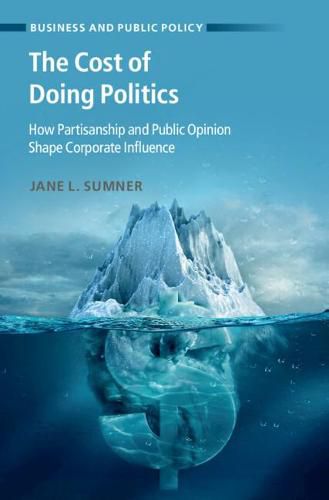Readings Newsletter
Become a Readings Member to make your shopping experience even easier.
Sign in or sign up for free!
You’re not far away from qualifying for FREE standard shipping within Australia
You’ve qualified for FREE standard shipping within Australia
The cart is loading…






Using quantitative and qualitative evidence, Sumner shows how consumer boycotts can work to dissuade companies from donating money to politicians, but may also encourage companies to attempt influence by largely invisible means. Boycotts do not work as many people expect - by threatening sales. Instead, Sumner shows how boycotts are less a statement of consumer behaviour than a way for people to signal their political inclinations, and they primarily hurt companies by tarnishing their reputation. Political influence is about building relationships, which means that companies have many more options for influence than just PAC contributions and formal lobbying. With these options available, companies can decide how to influence politics when they need to, and the tarnish of boycotts to a company’s image can push some businesses to pursue options that are less noticeable to the public.
$9.00 standard shipping within Australia
FREE standard shipping within Australia for orders over $100.00
Express & International shipping calculated at checkout
Using quantitative and qualitative evidence, Sumner shows how consumer boycotts can work to dissuade companies from donating money to politicians, but may also encourage companies to attempt influence by largely invisible means. Boycotts do not work as many people expect - by threatening sales. Instead, Sumner shows how boycotts are less a statement of consumer behaviour than a way for people to signal their political inclinations, and they primarily hurt companies by tarnishing their reputation. Political influence is about building relationships, which means that companies have many more options for influence than just PAC contributions and formal lobbying. With these options available, companies can decide how to influence politics when they need to, and the tarnish of boycotts to a company’s image can push some businesses to pursue options that are less noticeable to the public.